Poetry is a Non-Violent Movement Against Anything Ready-made
(Three Days With Arundhathi Subramaniam)
Arundhathi Subramaniam said "The poetry I write is my discovery of myself and my world around."
She was with a host of us in Satkhol, a sleepy village in the Nainital district of Uttrakhand. Satkhol is a crucible of sunlight and cold, pines and snow-peaks. It is at the foothills of the Himalayas, and is nestled amongst orange groves, drifting clouds and whispering willows. There is a riot of hues and textures. And when one walks down down the steep and winding path to The Himalayan Writing Retreat, our hosts and where we stayed for three days, one is greeted by two of the gentlest dogs this side of the mountains, and a hospitality which brought warmth on the coldest days.
So. Ten poets sat in a cosy cottage with a slanting roof with slats of glass, which let in light and the changing colours of the skies. Arundhathi sat in front of a latent fireplace, replacing it with her luminosity, as she tucked in her long legs and untucked the generosity of her wisdom. Her voice was warm, deep, believing, questioning. And like all sentient beings who come out to talk of craft, spoke ambivalently of how to write because that could well be substituted for how to live. Everything she spoke could be an aphorism, a standalone sentence which could be carried home with fulfilment and completion. And as the sunlight washed over us and the days around us, we emerged completely drenched in grace.
Let the practice in other art forms always permeate your writing practice.
Keep the pursuit of excellence going on - not for the next book or anything - just for itself!
Relax. Don’t be somebody else. Be in the joy of being yourself.
Acknowledge your uniqueness. You are the best version of yourself.
Allow the poem be what it wants to be. Not what you want it to be.
When asked what was the message of a piece that he'd written, Nabakov said - I’m not a postman.
Get the texture of presence.
Get the texture of a poem - more than just the content
Don’t oppress yourself by trying to give a message. There’s no message left to give, except to give exuberance.
Read poetry.
Arundhathi talked about reading poetry. Eliot, Neruda, Arun Kolatkar, Dylan Thomas, George Quasha, Kamal Vora. She spoke of song writers. Leonard Cohen, Bob Dylan. She spoke of artists. Arpana Caur, Jayshree Burman. She spoke of novelists. Kiran Nagarkar, Margaret Atwood.
Offer yourself a reprieve from the depth of content. It doesn’t have to be heavy. Don’t get caught in its meaning.
Be in the presence of the poem. Be there. Even if you don’t know what it means. A clue - a poem doesn't have to be understood to be loved. It needs to be recognised to be loved. You don’t understand why but you are invited to it’s beauty. Allow it to wash over you. It doesn’t require a verbal response.
Go to the dictionary. Go. It adds layers to understanding.
Each one of us have to decide where we want to be. Not what our voice sounds like but what our silences sound like.
Keep your uniqueness and your insignificance together. It’s good to keep it together. In life too.
Let influences sweep over you! The finest poetry shifts convention until it becomes norm. Write in such a way that it is familiar but still shifts conventions. Startling but deeply familiar. Shift paradigm but be achingly familiar to the reader - and you have a poem.
Arundhathi spoke of language as a sacred thing. And something which needed to be violated at the same time. There had to be reverence and irreverence at the same time, to have something which meant something to the poet, and consequently to the reader. Nothing was to be readymade, nothing was to be normal.
Make sure your language resists anything ready-made. Poetry is a non-violent movement against anything ready-made. It is a satyagarah.
All poetry then is political. Even ignoring something is a political act.
Poetry is just not about words. It is a visceral experience of silences. It is the oldest verbal art because of the silences. The mantra. Whatever your utterances, include silences.
Remember what Paul Valerie said about a poem - "You never ever end a poem . You abandon it."
Arundhathi said the writing of a poem was of conjuring textures. Of bringing into life beauty which is crafted out of unforgettable images. And letting this to be a journey where slowly you become the led....
A lot of the craft of poetry is the crafting of metaphors.
See the imagery of Neruda when he said -"I want to do to you / What spring does to a cherry tree"
Image should not take you away from the poem, it should take you inside the poem
Image is not decorative - it should bring truth and beauty together.
Poem is a invitation to experience.
Every word should make its presence felt, and it should matter. Edit whatever is not required
There’s nothing like a simple poem. Everything has meaning. The thing is - is it working or not?
Deeply anchor the beauty you find in things.
Look at how images are cleverer than you. And take you to some other place.
Trust the images.
Get the particular into the poem.
Read read read with awe.
And then she spoke of how we should not forget why we write poetry. It begins inside first, before it reaches the world. And she spoke of not getting overwhelmed with the world's expectations or the boasts of those who treasure appearances more than meaning. And why we must love what we do, irrespective of what the quality is. But to remember that taking the journey someplace else requires upping the ante.
Stay immune to voices which try to bring you down - have you not been published there? You haven’t gone to Jaipur lit fest? Ignore these voices. Don’t get oppressed or impressed.
What do you take away from a poem? You’re richer.
Let’s get joy out of bathroom singing. But do a rain check before we do concert singing.
Describe the journey, and leave it to the reader to join the dots as to where it goes. Give a thread don’t give a rope. Invite the reader to the heart of the mystery.
Let the humility come through the images. Let it all be open for you.
A good poem should shift something in you and leave you feeling differently.
Don’t tell me about the story. Show it.
Have a community, to learn from each other, and not a club, only meant to congratulate each other.
We wrote. We laughed; often we cried. We walked to a temple at the top of a hill, where we sang songs. We walked on undulating roads to eat samosas and drink sweetened pahari chai. And we opened ourselves to the metaphors which made us see ourselves better. The final evening, we danced. We didn't want the retreat to end. We were bonded with the threads of our most vulnerable selves.
I wrote this -
We all walked in wounded, signed in
to find words for silences we held,
the path to the nook dappled
as the breeze moved the shadows.
.
We reached out, to see if there was balm
to be had from a stranger we knew little,
as the sun found its raison d’être
in the caresses from shades in the vale.
.
We walked beside the geraniums
as they bled their colour as welcome,
we wondered if the snow around peaks
could tumble to cover the somnolent sun.
.
And we reached out with our stories,
tremulous to gusts and touch,
and found there were scars
much deeper than ours.
.
We cried into our stories
our judgement burnt in the softest of gaze,
as we opened our arteries to blood flow -
and found we gave less than what we got.
.
We all walked in wounded
we all walked out saved,
learning to dance together,
learning to love the dance even if alone.
.
We all walked in wounded
we all walked out saved,
learning to dance together,
learning to love the dance even if alone.
Read Arundhathi Subramaniam’s poetry -



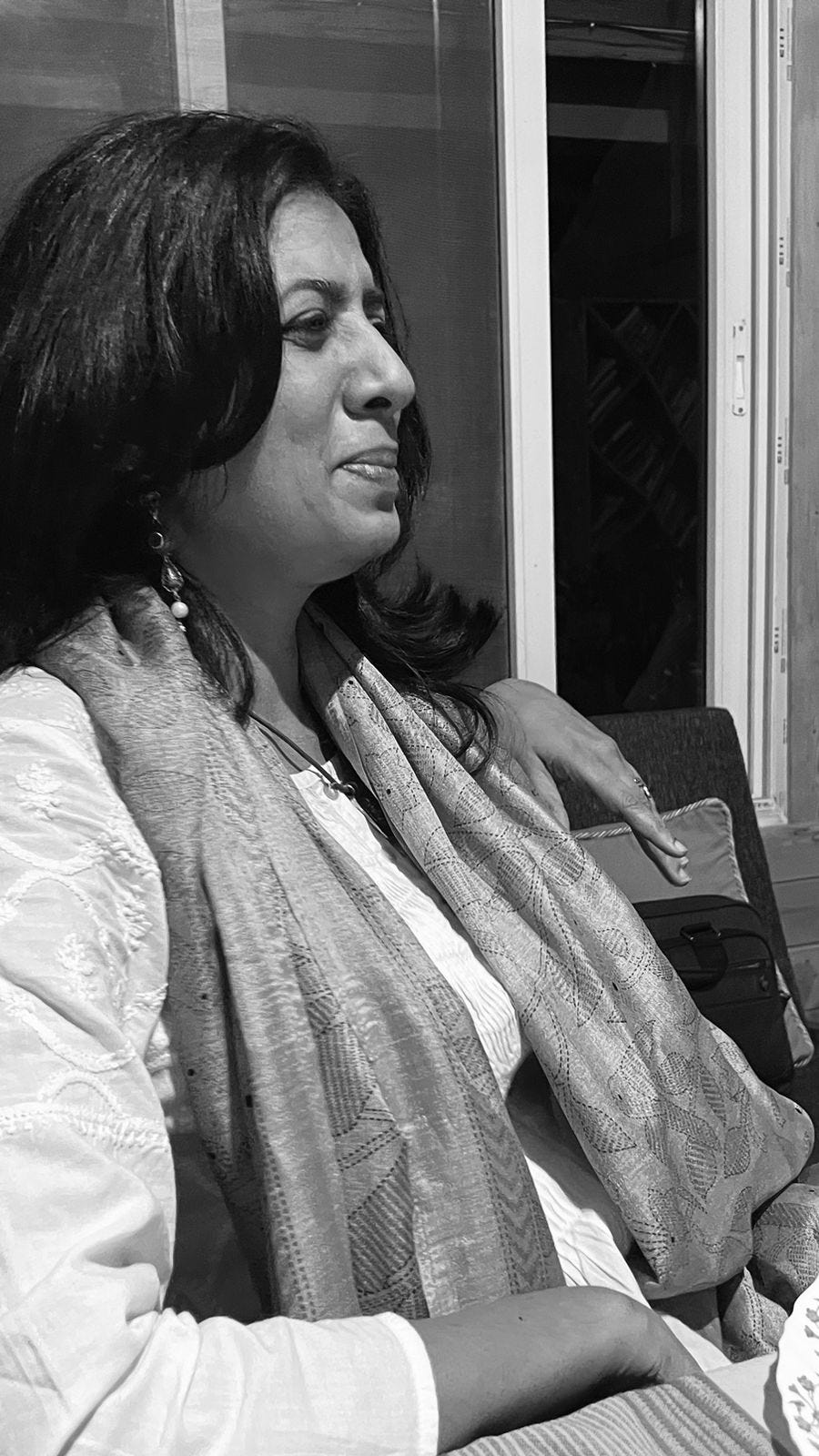
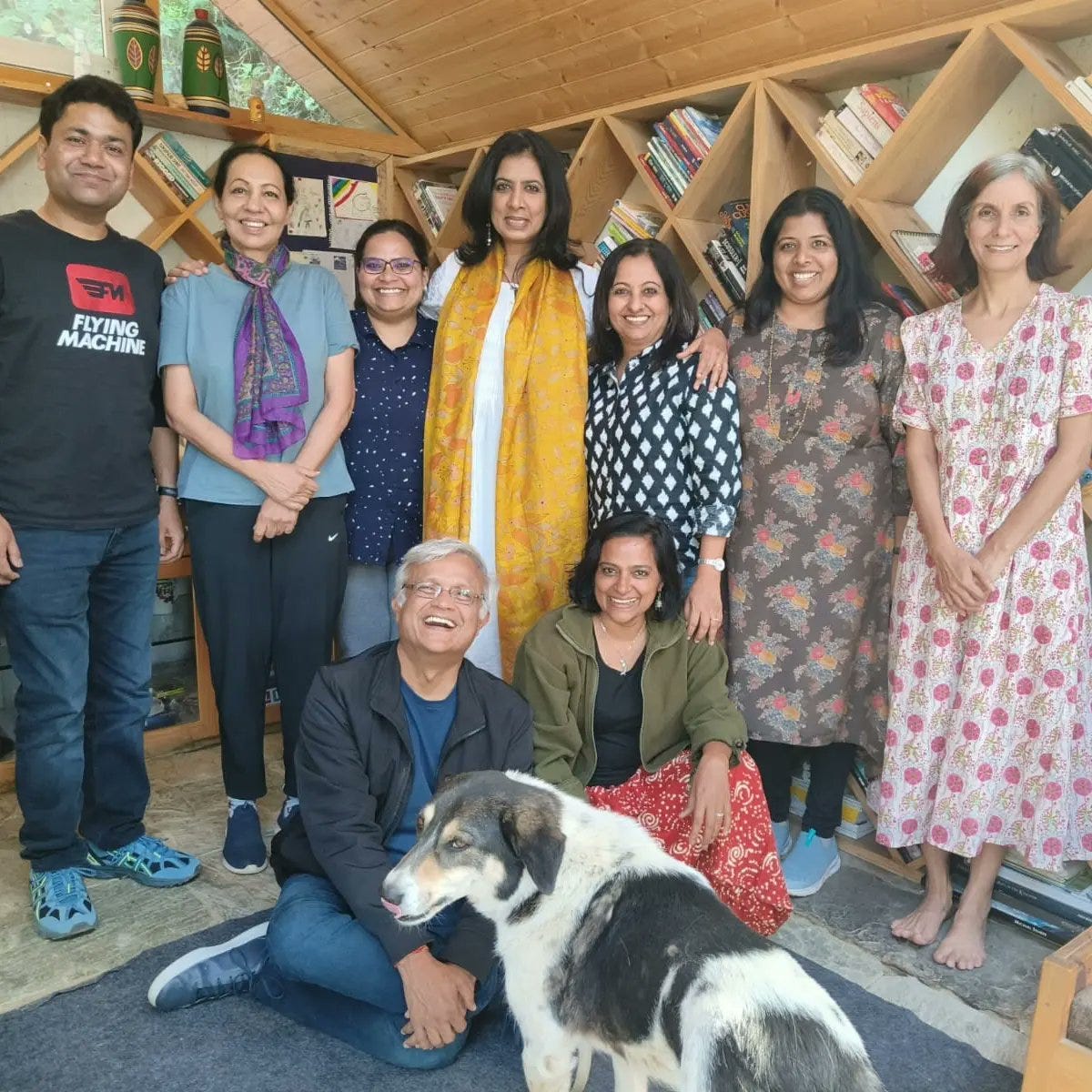
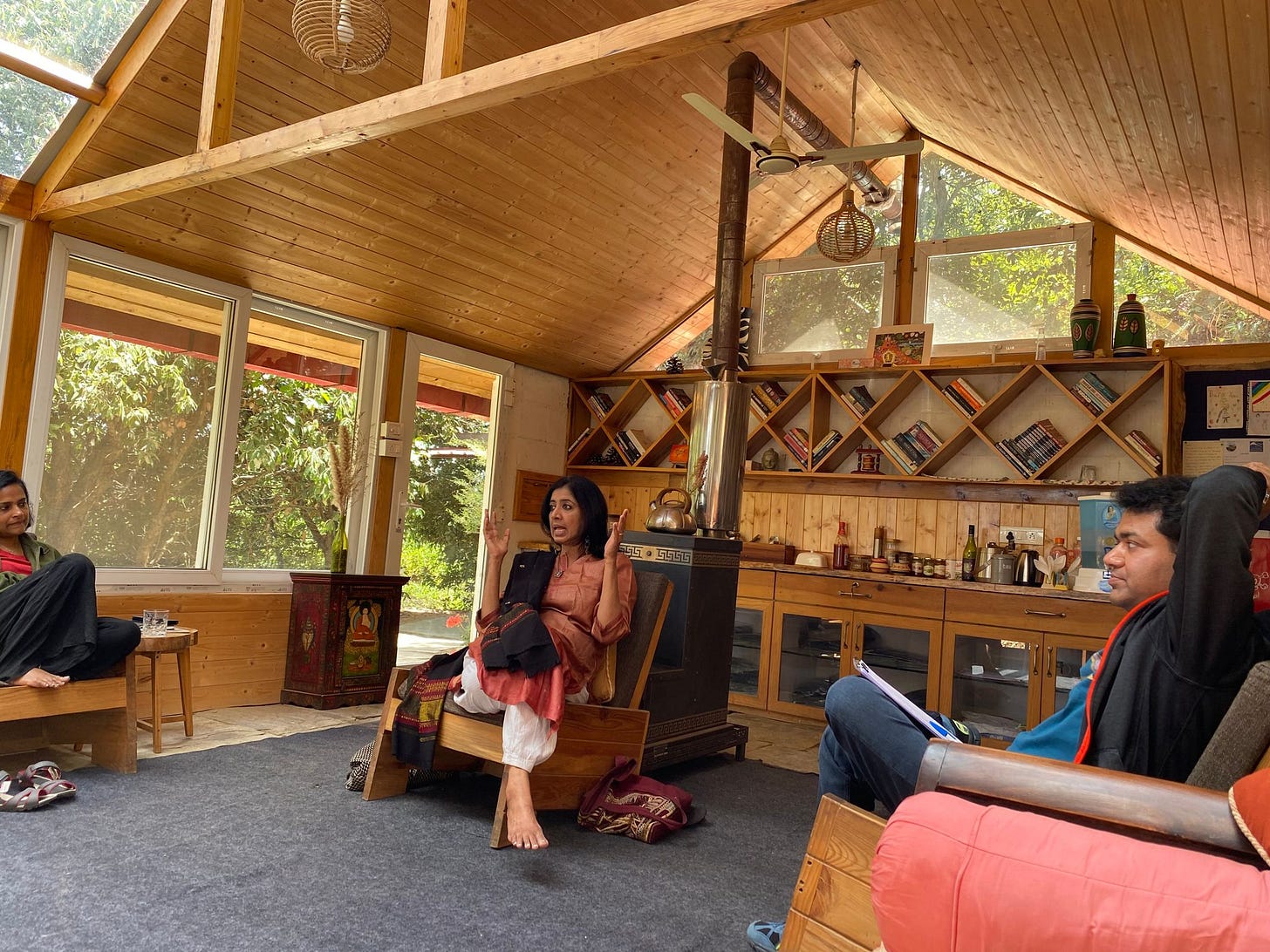


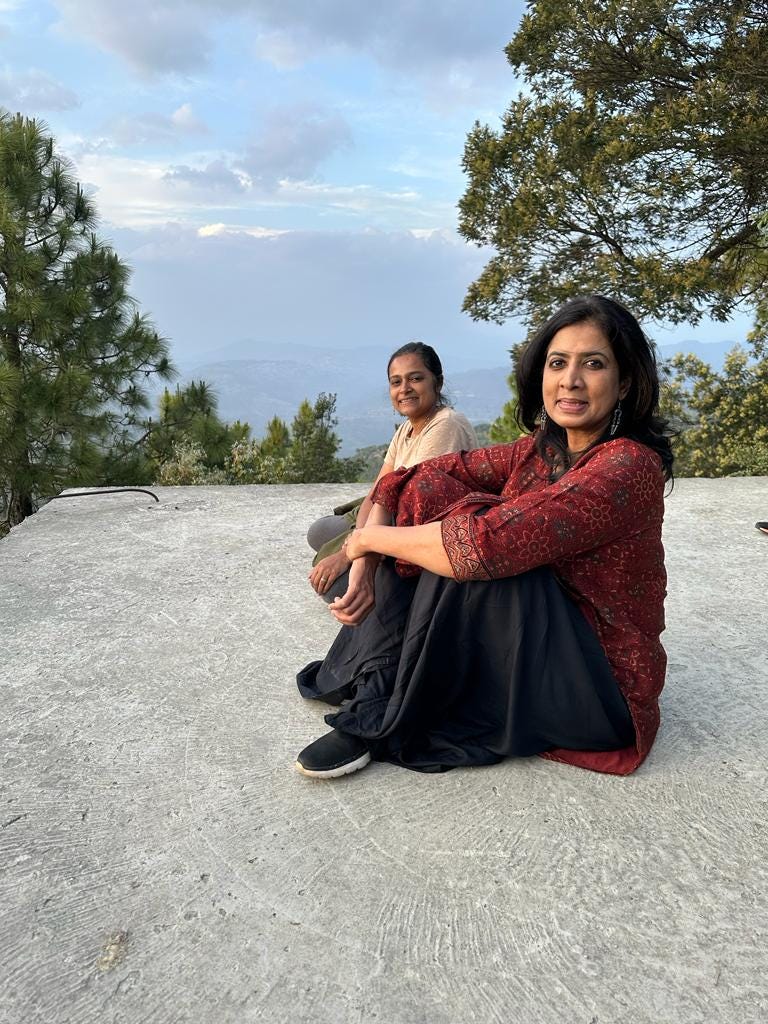
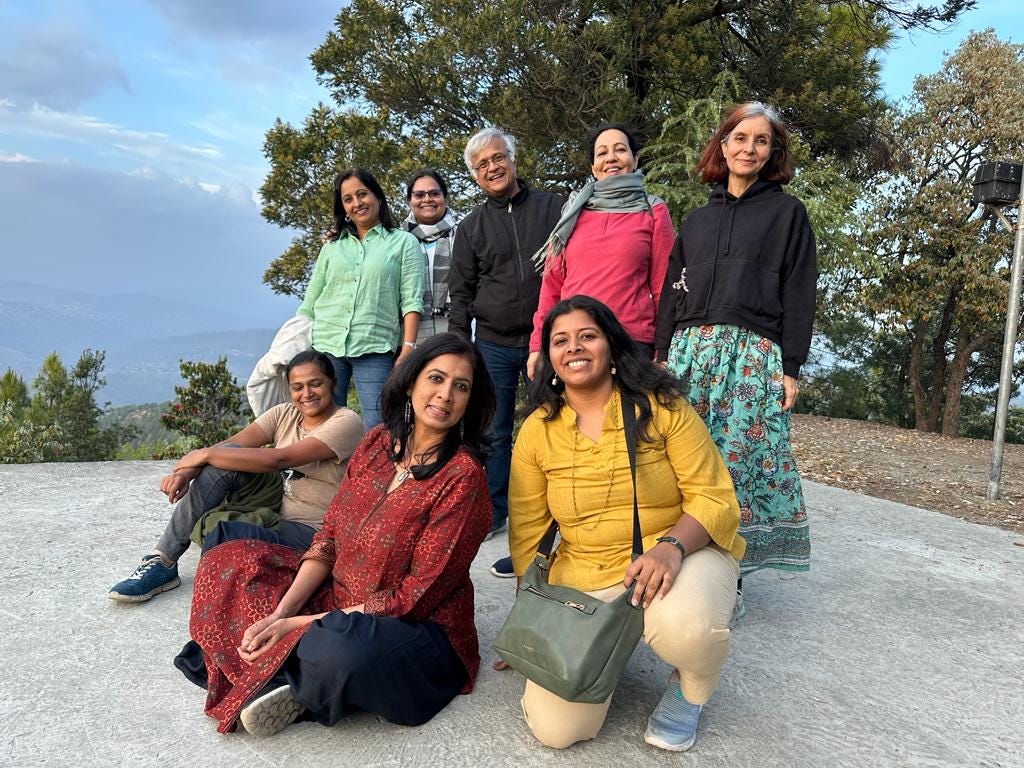
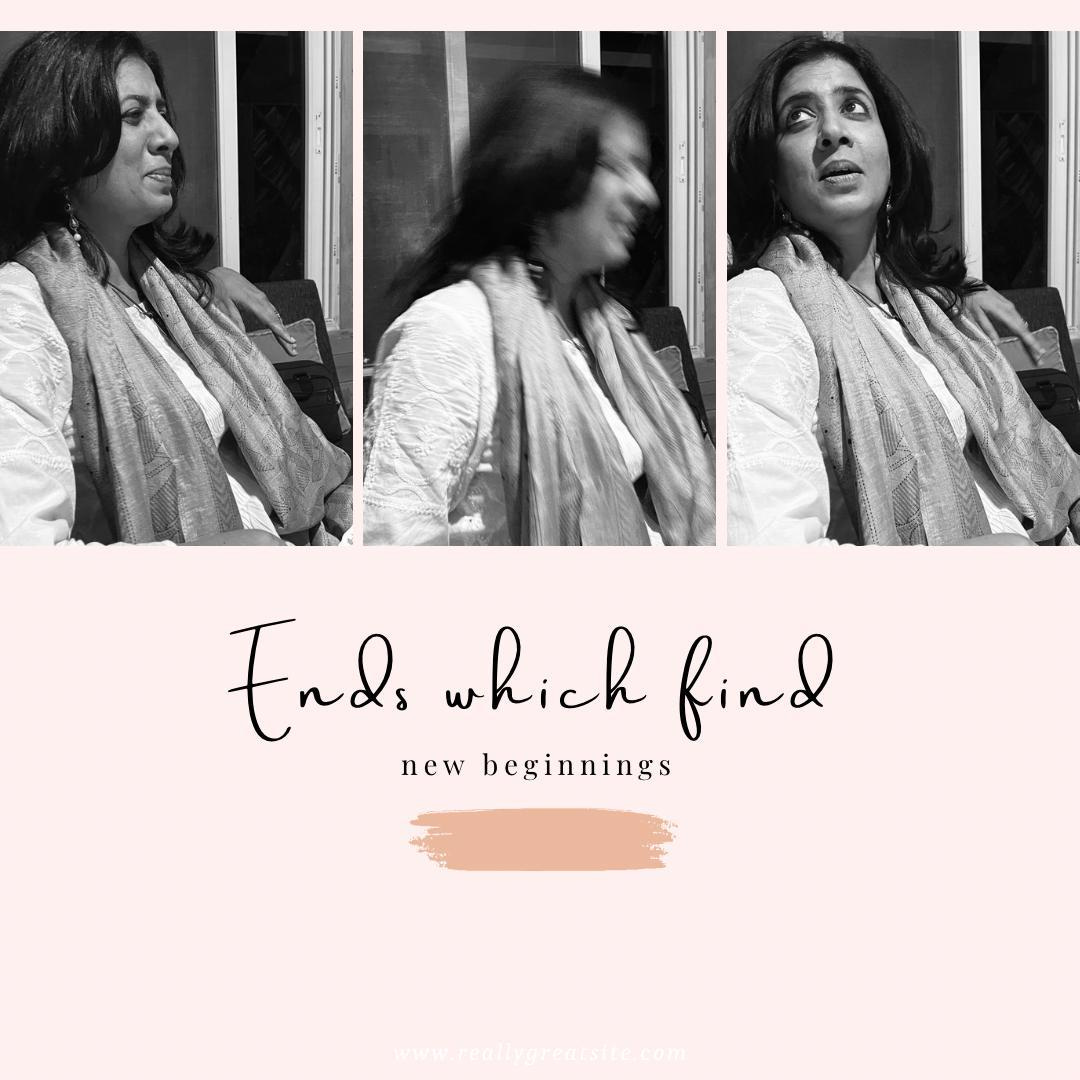
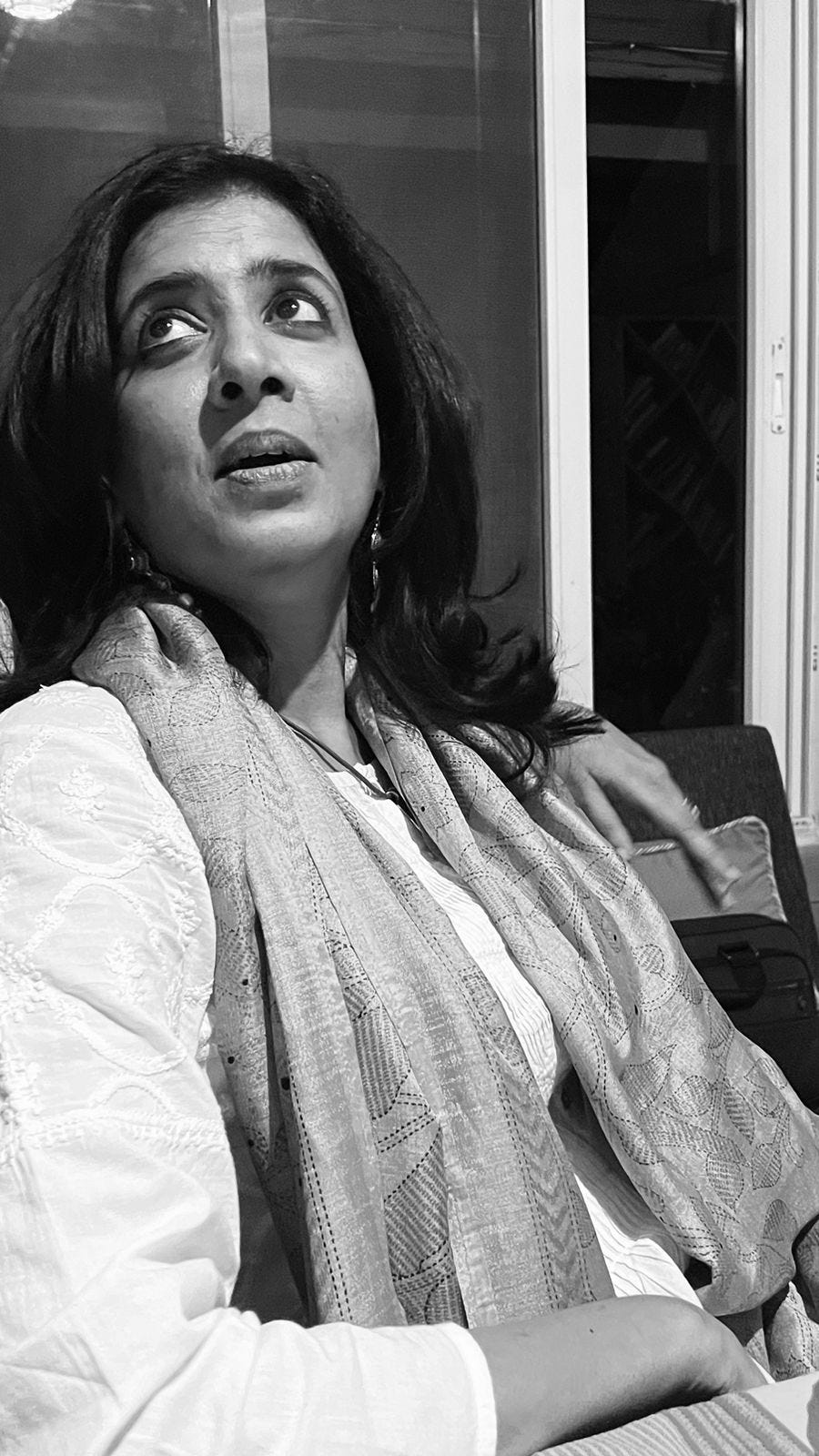
Every word of this felt so good to read and so glorious to be in the presence of. Like stepping into a warm light pouring through a clear window in a quiet room where deeper sounds are waiting. Thank you.
That looks like a very valuable gathering. I found myself skipping to the poem, though, and I think I found in it more than what was written above.
You are a great writer, Sunil, you manage to capture so much in your poems. Thank you for sharing.